This department aims to analyze and understand life phenomena at the molecular level and to reconstruct their functions artificially for wider application. The focus is on the development of biotechnology and techniques to extract and design biomolecules having biofunctions. The department cultivates chemists and researchers connecting the fundamentals and applications in the fields of biotechnology and nanotechnology.
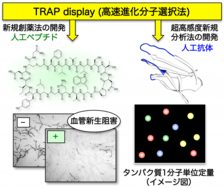
Professor: Hiroshi Murakami
Associate Professor: Gosuke Hayashi
Using knowledge of chemistry and biology, we create novel peptides and proteins that are useful in biological research and in drug development. Furthermore, by combining these biomolecules, we are currently developing new bioanalytical methods such as ultrasensitive next-generation peptide sequencing technology and a protein quantification method with single-molecule resolution. We aim to contribute to progress in science and society by developing new technologies that make previously invisible molecules visible and previously un-makeable molecules makable.
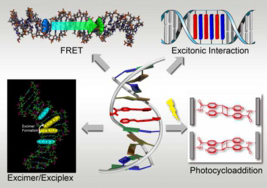
Professor: Hiroyuki Asanuma
Associate Professor: Hiromu Kashida
Assistant Professor: Keiji Murayama
Various biomolecules created by life activity show their superior potentiality to us. In this laboratory, we design and create new supramolecules that further exceed natural materials by learning how natural molecules function in life. We are now developing new tools for future biotechnology, nucleic acid drugs for next generation, and high-performance nano-materials by making full use of nucleic acid (DNA, RNA) and peptide. We also analyze their functions on the bases of structural biology and physical chemistry.
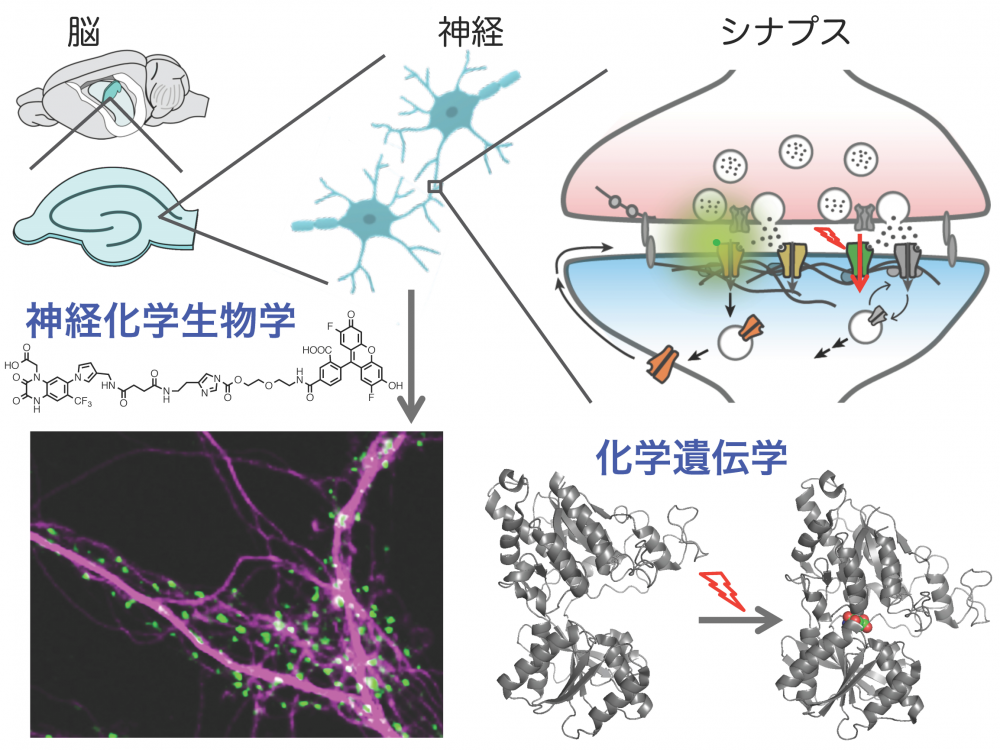
Professor: Shigeki Kiyonaka
Assistant Professor: Tomohiro Doura
Assistant Professor: Kenji Yatsuzuka
Organic chemistry has significantly contributed to clinical areas such as drug discovery. On the other hand, genetic engineering is making a revolution in biology, representing recent development of genome editing. Our research focuses on developing a novel methodology termed “Chemogenetics" in which organic chemistry and genetic engineering have been combined. Our goal is clarification of complex biological systems, such as neuronal system.
(Figure: Novel technology to identify brain function using chemgenetics and neurochemical biology)
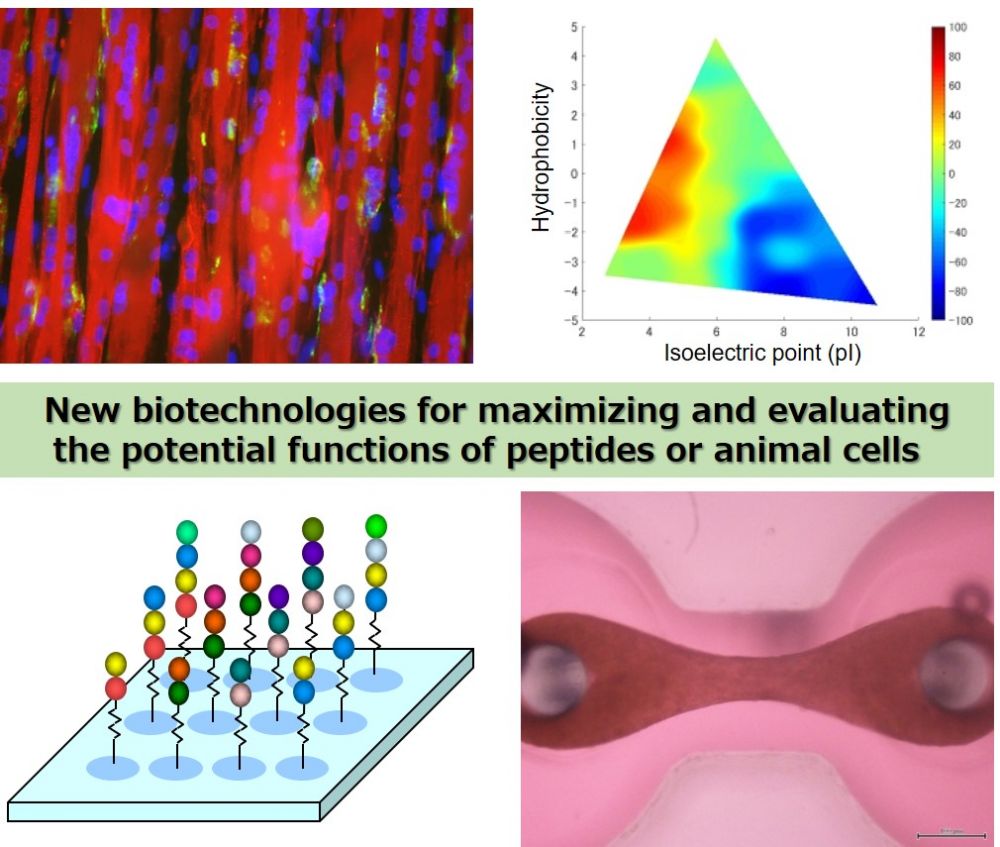
Professor: Hiroyuki Honda
Associate Professor: Kazunori Shimizu
Assistant Professor: Hirokazu Akiyama
Our research is focused on the development of new biotechnologies to maximize the potential functions of biomolecules or living things and to be applied for the healthcare industry. With the special interests in bioactive peptides and animal cell culture, we aim to understand and optimize their complicated biosystems using the latest technologies including peptide array, tissue engineering, BioMEMS, and AI for the development of new medicines and food materials.
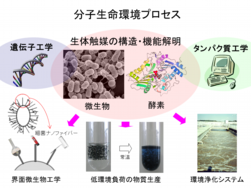
Professor: Katsutoshi Hori
Associate Professor: Atsuo Suzuki
Lecturer: Hajime Nakatani
Assistant Professor: Shogo Yoshimoto
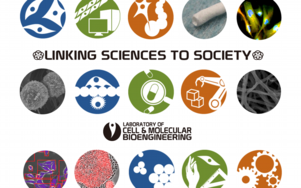
Associate Professor: Ryuji Kato
Assistant Professor: Kenjiro Tanaka
Drug development, evaluation, and screening is the cross-over field which requires the fusion of “Biological basic science" and “Advanced technology for efficiency". By the recent development of cellular science and technology, we are now in the decade to obtain stem cells/differentiated cells for drug exploration, evaluation, and screening. Moreover, there are extreme growing needs for cells for cell therapy in the most advanced medicinal approaches.
We believe that technological development for commercialization and industrialization is strongly required to enhance the industrialization and commercialization of new medicinal science which uses “human cells". In our lab, we are devoting our energy to link cutting edge sciences and technologies, for wider and faster distribution of happiness and medical successes in our society. For such aim, we are developing fusion technologies in cross-over field by linking science of cell, molecule, and informatics. Our goal is to develop original technological applications to enhance the fusion of basic science and product manufacturing, science and technology, health care and industry, and university, company, and government organizations.